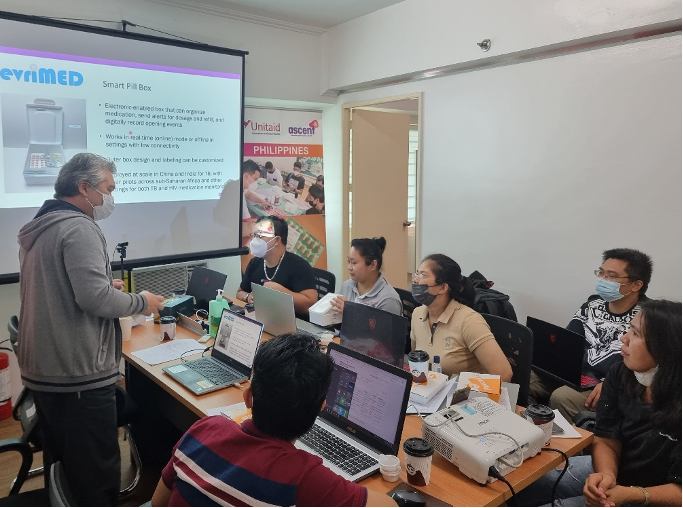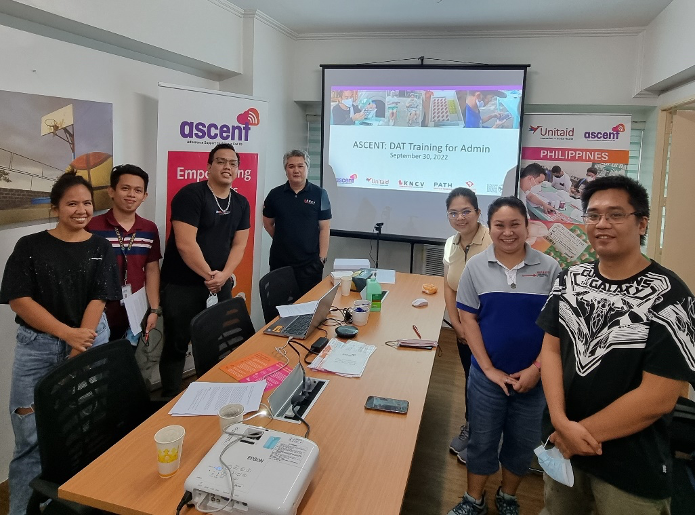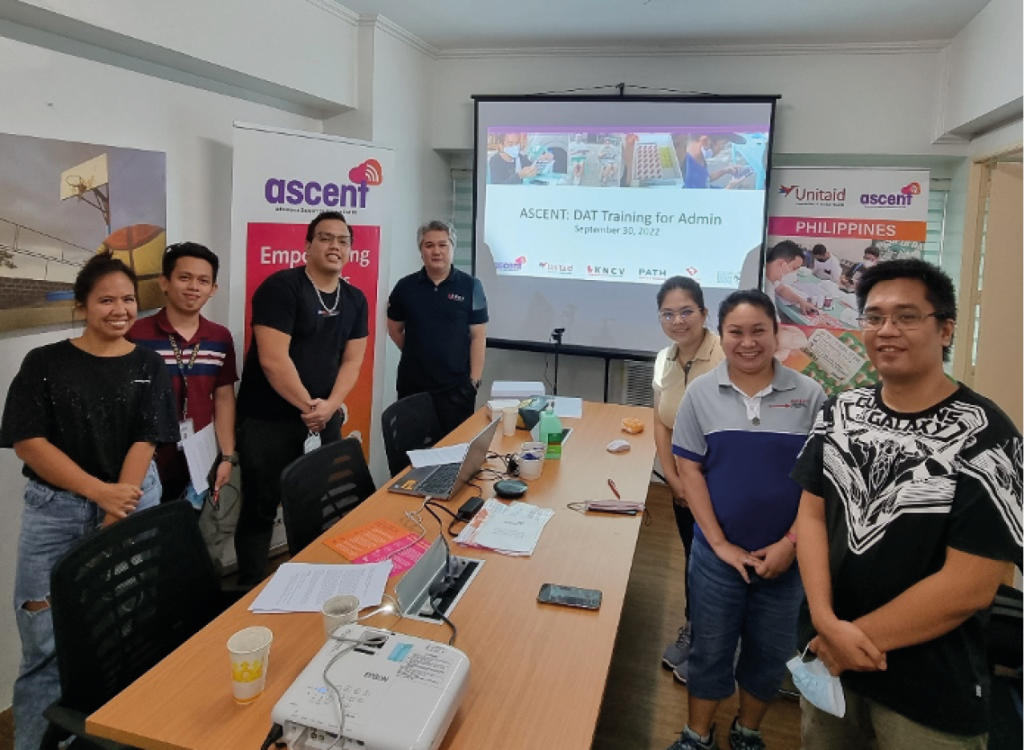Led by Angelito Santiago, Digital Health Technical Officer, ASCENT Philippines trained six information technology (IT) specialists from the Department of Health (DOH) Knowledge Management and Information Technology Service (KMITS) on the use of digital adherence technology (DAT) for tuberculosis (TB) treatment. DATs are used to reinforce patient medication adherence and facilitate healthcare provider’s monitoring of patients. The training aimed to equip selected staff to take on the role of DAT administrator after the ASCENT project phases out in December 2022. Both KNCV and DOH recognized KMITS as the entity most capable of assuming this role.
The IT specialists were trained on the use of DAT – the adherence platform, the 99DOTS medication label, evriMED smart pillbox, and SureAdhere video-supported treatment tools.

As DAT administrators, the trained IT specialists will provide technical support, including troubleshooting and monitoring digital adherence data through a single adherence platform, to health facilities that will continue or start to use the DATs. They will also cascade in October-November 2022 the knowledge and skills they learned down to the regional and provincial representatives of the DOH Integrated Tuberculosis Information System, starting in Region III (Central Luzon).
The use of DAT tools is scheduled to undergo the DOH Health Technology Assessment (HTA), the process for generating evidence to back up resource allocation decisions in the health sector. Pending the HTA, DAT implementation continues through donor mechanism.
The Philippine Business for Social Progress (PBSP), through the Global Fund-assisted Advancing Client-centered Care and Expanding Sustainable Services for Tuberculosis (ACCESS TB) project, committed to support the use of DAT in all PMDT facilities (more than 200 facilities) across the country. Discussions on PBSP supporting DAT use in ASCENT-assisted drug-sensitive TB facilities are ongoing.
The Unitaid-funded and supported ASCENT project is led by KNCV Tuberculosis Foundation in partnership with The Aurum Institute, London School of Hygiene & Tropical Medicine, and PATH.

